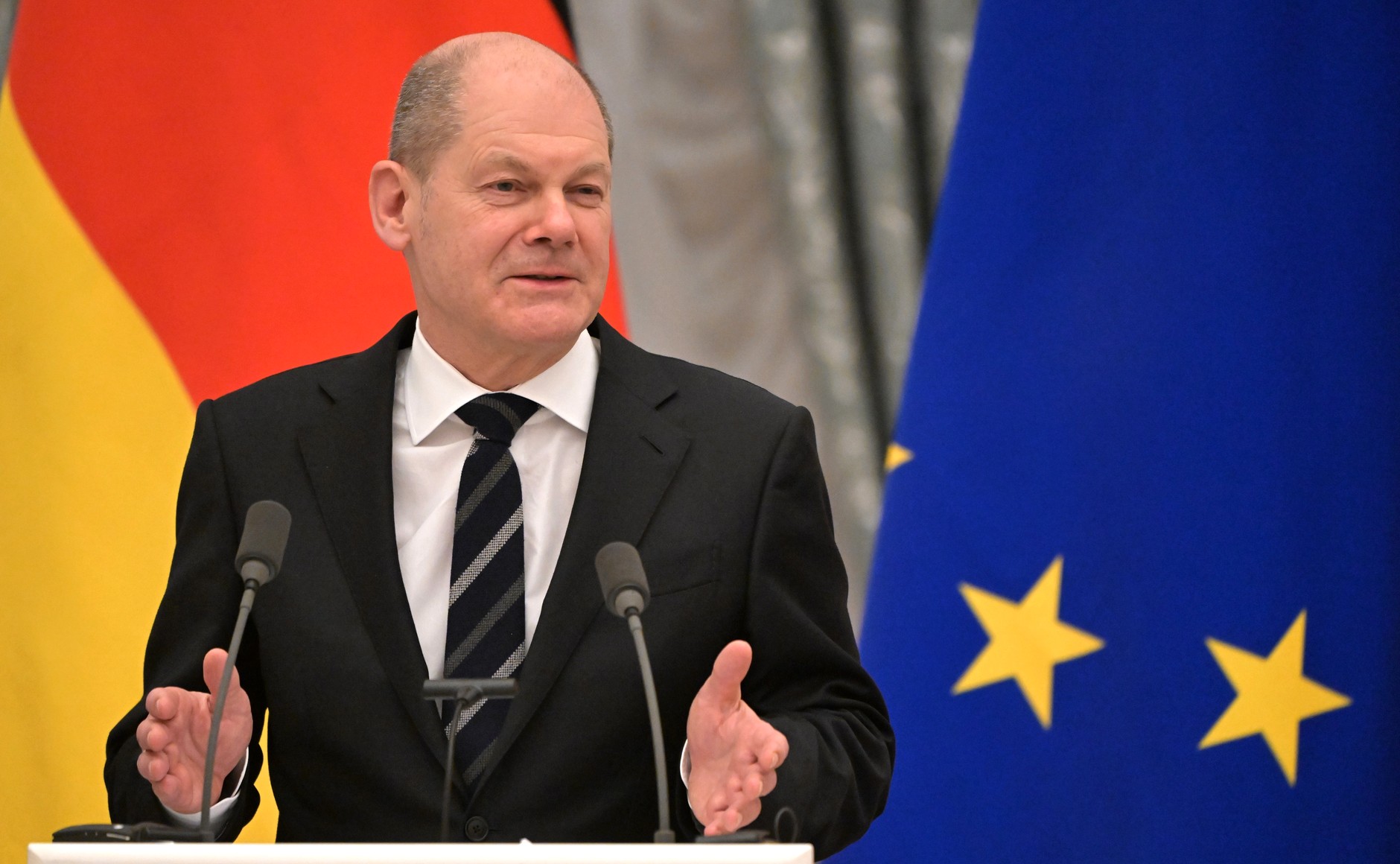
Russia Monitor is a review of the most important events related to Russian internal and external security, as well as its foreign policies.
Date: 21 February 2022 Author: Grzegorz Kuczyński
While In Moscow, Germany’s Scholz “Prompted” Putin To Invade Ukraine
The trip that the German chancellor paid to Kyiv and Moscow failed to ease tensions in eastern Europe. In fact, Scholz made Zelensky a kind of disservice by agreeing with the Kremlin on the need to fulfill all commitments under the Minsk agreements and by claiming the Ukrainian president would be prepared for potential concessions. Vladimir Putin felt empowered to attack Ukraine and blame Kyiv for not having implemented what is known as the Minsk agreements.

German Chancellor Olaf Scholz traveled to Kyiv and Moscow on February 14 and 15 in a bid to “calm tensions” between NATO and Russia. He was the last of major Western officials to take action. And perhaps he did not do as poorly as France’s Emmanuel Macron, but he scored worse than Poland’s and UK’s chief diplomats. Scholz painted his trip to Moscow as an attempt to defuse tensions and “avoid a war in Europe.” High on the agenda of the Scholz-Putin meeting was whether Ukraine was committed to the Minsk protocol. Alongside this topic was an issue of keeping Ukraine outside NATO, in a formula to be refined, albeit according to Russian security demands. In a nutshell, Scholz had the meeting agenda imposed. Despite its allegedly peaceful character, it spoke about nothing but concessions Ukraine should make. Did Scholz travel to Kyiv and Moscow to calm tensions and save peace? It is possible. The official made it clear that Kyiv was the only one to sacrifice for peaceful resolutions. What Scholz said was in tune with Putin’s view. The German official shared his urge to fulfill all commitments under the Minsk agreements. The chancellor provided some details of his meeting with Ukrainian President Volodymyr Zelensky held a day before. Scholz said Zelensky “firmly promised” to prepare a draft bill about Donbas special status and amendments to the constitution as well as hold local elections in Donbas and apply what is known as the Steinmeier formula. The German chancellor also said the Ukrainian leader agreed to submit the draft legislation to the Trilateral Contact Group before they are discussed with the representatives of so-called Donetsk and Luhansk people’s republics. But neither did Zelensky say this during a joint press conference with Scholz in Kyiv on February 14 nor anytime later. The only time these were spoken publicly was after Scholz met with Putin. Interestingly, France’s Emmanuel Macron had also talked about offering concessions on the Minsk protocol, urging Ukraine to abide by them.
Support Us
If content prepared by Warsaw Institute team is useful for you, please support our actions. Donations from private persons are necessary for the continuation of our mission.
All texts published by the Warsaw Institute Foundation may be disseminated on the condition that their origin is credited. Images may not be used without permission.















